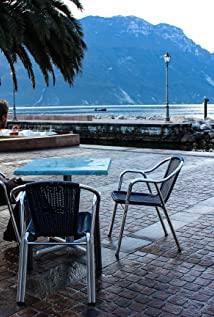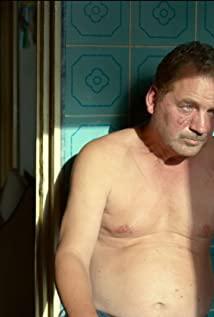Friday words: Usually, a movie is trying to find the commonalities of people in a certain social background, such as love, faith, truth, justice and evil, etc. This kind of commonality can always win the audience. Empathy and the awakening of collective moral consciousness. But there is such a movie, even though its political environment is already obvious, it doesn't seem to have much interest in finding commonalities. On the contrary, the characters under the lens seem to have their own survival tactics in a specific environment. Perhaps it is this point that makes this film even more cruel. It is the film "Three Weeks in April" that won the Palme d'Or at Cannes in 2007!
(A link to the movie Baidu Cloud is attached at the end of the article)
Note that the characters shown in the movie "Three Weeks and Two Days in April" include people who suffer because of their loyalty; there are "green tea girls" who love to play tricks and sell the poor; ; there are also indifferent vested interests within the system…
The question arises: Are the behaviors of these individual characters caused by the social context, or are they simply caused by human nature? Should we hate and condemn them, or should we sympathize with them and find another reason? It depends on the direction we answer the question.
With these questions, let's look at this "Three Weeks and Two Days in April"——
1. The socio-political context of the story
From 1965 to 1989 Romania was known as the "Romanian Socialist Republic", with Nicolae Ceausescu as its supreme leader. During this period, Ceausescu radically implemented a centralized system; he carried out three five-year plans to expand exports; in terms of cultural construction, he implemented a writing prison, strictly prohibited individuals from owning a typewriter, and was keen on the construction of leader worship...
Of all Ceausescu's initiatives, the decree "Prohibition of Abortion" is the most notorious.
In order to increase the population and enhance national strength, Osescu declared: fetuses are the wealth of society, and those who do not have children are those who betray the country. He stipulated that divorce was prohibited and that each Romanian couple should have at least four children. Immediately afterwards, the state promulgated a decree that both birth control and abortion are illegal, women who cannot conceive will have to pay taxes, those who have abortions will be sentenced and imprisoned, and women’s menstrual periods will be subject to strict inspections and cross-examinations…
On 25, 1989, the Ceausescu and his wife were sentenced to death by a special military court on five counts of "genocide and massacre of 60,000 people", "endangering the country", "destroying public property" and "destroying the national economy". Execute now...
Yes, the story of "Three Weeks and Two Days in April" happened two years before the fall of the "Ceausescu regime".
2. Story
"April three weeks and two days" refers to the time it takes for a female college student in the play to get pregnant and have an abortion. The movie is about the whole process of her abortion. Abortion is definitely illegal under the above-mentioned political background. Therefore, the characters involved in the incident, including the person who performed the abortion, the doctor who performed the operation, and the roommate of the college student who helped, all face the risk of imprisonment, and their behavior must be concealed. conduct. Naturally, we are also in a state of tension, depression and irritability when watching this movie.
"The Abortion Process" is the main story line, and the movie has two other story lines, which are the emotional entanglement between Otilia (the roommate who helped Gabita's abortion) and her boyfriend, and the family background of the doctor who gave Gabita's abortion.
Yes, the whole movie is made up of these three story lines, each of which has a series of problems that its inner characters have to overcome, and all these problems to overcome constitute the dramatic tension of the film's story.
3. The social identity and structure of the characters in the story
While watching the movie story, we can learn some other information with the help of the identities of all the characters in the story:
1. Otilia
We learned from the experience of this female college student: it turned out that in Romania at that time, the only way for rural girls to be free was to go to university, study science and engineering, and find a boyfriend in the city; I also have to apply for a temporary residence permit; it turns out that people in the city look down on outsiders... In addition, Otilia is very loyal and loves to help others. Even if she is dumb, she is reluctant to share her secret with her boyfriend. The locals are not trusted.
2. Gabita
This is a cowardly, unassertive, clever little woman who likes to pretend to be pitiful and deceive others to sympathize. Why do you say that? If you look closely at the details in the movie, you will find that she likes to instruct others not to say anything, but also chooses and washes. You have to use a good brand of hairspray, and it’s best to eat and smoke. After taking advantage of it, you have to pick on other people’s faults...
3. Doctor
This doctor is difficult to characterize. He is not like his female roommate, Otilia, who is stupid enough to help others, but he does not seem to be heartless; he has a family and children, but he seems very irritable and has a great deal of concern for those college students who have abortions. Opinion (even if those college students are his source of income); he and Otilia (the female roommate) are two extremes in character: one stupid to hate, one rational to hate.
4. Boyfriend's family
The boyfriend's family is a typical beneficiary of the system, and the price they benefit from is the bystander and indifference to the bottom and the disadvantaged. The "boyfriend" in the play once tried to understand the difficulties of his girlfriend "Otilia". However, their social identity and interest relationship have become an insurmountable barrier between the two.
5. Hotel waiter
The abortion and drainage operation in the play is carried out secretly in the hotel, therefore, the parties involved in the operation will inevitably have to deal with the service staff of the hotel. Through this we see the indifference, hostility and mechanicalness of those who work under the system.
The method of filming
The film uses a lot of long shots and shoulder shots, giving people a documentary-like feeling; at the same time, it gives people a feeling of panic; a lot of gray tone processing, backlighting and the use of street lights at night (let the characters' faces (The Ministry disappears and appears in the dark) to make the dark atmosphere of that society more intense, of course, this kind of darkness is aimed at ordinary people at the bottom.
Another is the film's open-ended composition and stills, making it more realistic and depressing.
It is also worth mentioning that the movie did not use a soundtrack from the beginning to the end, which is very bold in the movie. It will greatly reduce the story interest of the movie, but it will undoubtedly accentuate the cruelty of the reality under the movie.
5. My sense of identification with "Three Weeks and Two Days in April"
Going back to the question at the beginning: Are the behaviors of these individual characters caused by the social background, or are they just caused by human nature? Should we hate, condemn, correct them, or should we sympathize with them... It just so happened that we had the case of "Liu Xin and Jiang Ge" just last year. It is especially like: one turns to the other for help, and he is happy and happy, while the other suffers a knife for the former and suffers a big loss. In the face of this, what have we done other than condemn and criticize the individuals who experienced the event? ! This is what the director wants to remind us in "April Three Weeks and Two Days" - the relationship between individual events, characters and social background.
Looking at this "April Three Weeks Two Days", it is not so much a "political film" as it is a "character painting". The director did not positively portray the high-pressure centralized policy of the ruling class, nor Without interpreting the characters' ideology and values too much, these things are hidden in the language of the film, and the remaining characters who survive in this environment are just dealing with what they have to do at hand—— Helping friends, having an abortion, picking up jobs, sticking to job duties, etc. It's just that, the heroine swipes to the camera. How helpless and cruel this glance is.
Baidu cloud link: https://pan.baidu.com/s/1eeYjE-yEHKr60A7OgFhlkQ Password: 63kz
View more about 4 Months, 3 Weeks and 2 Days reviews











